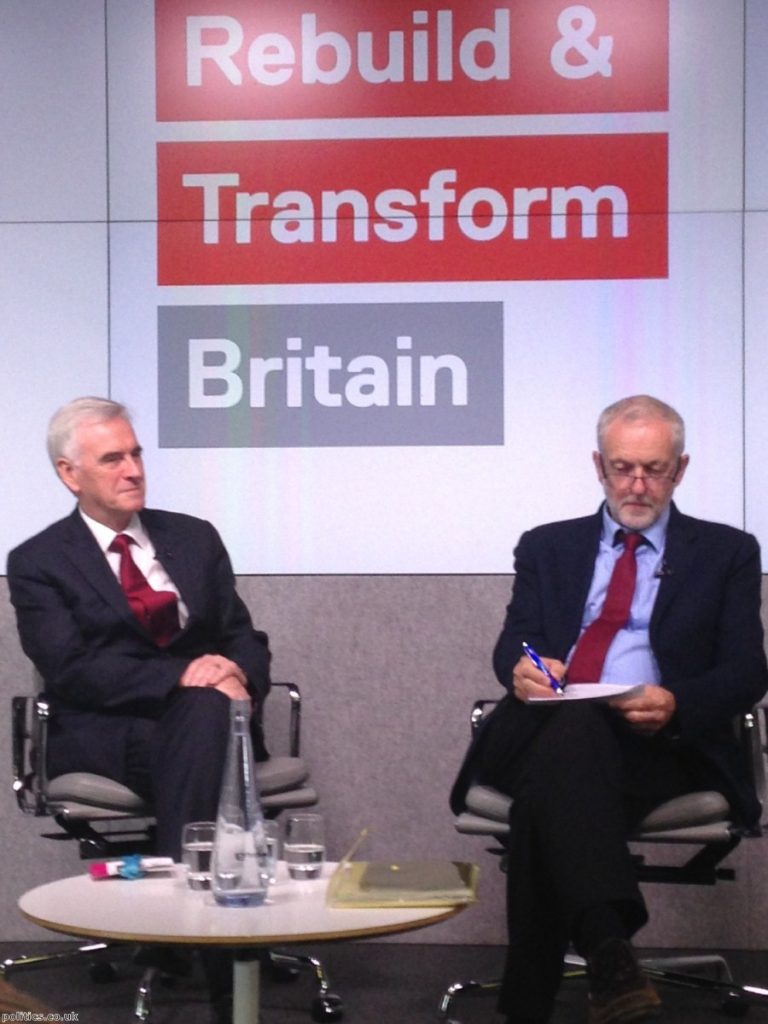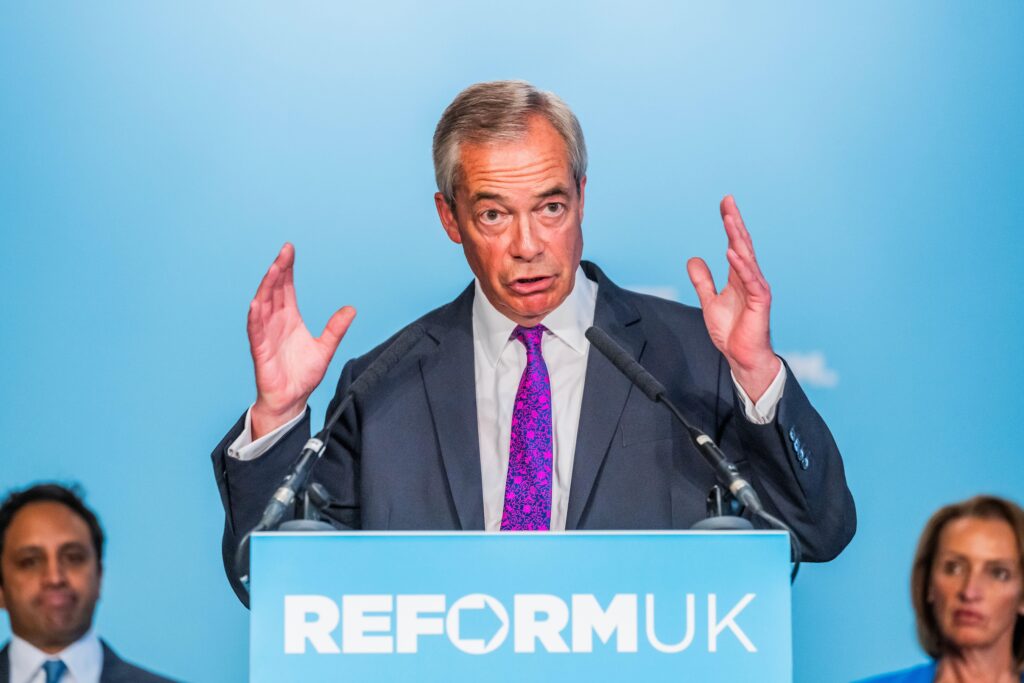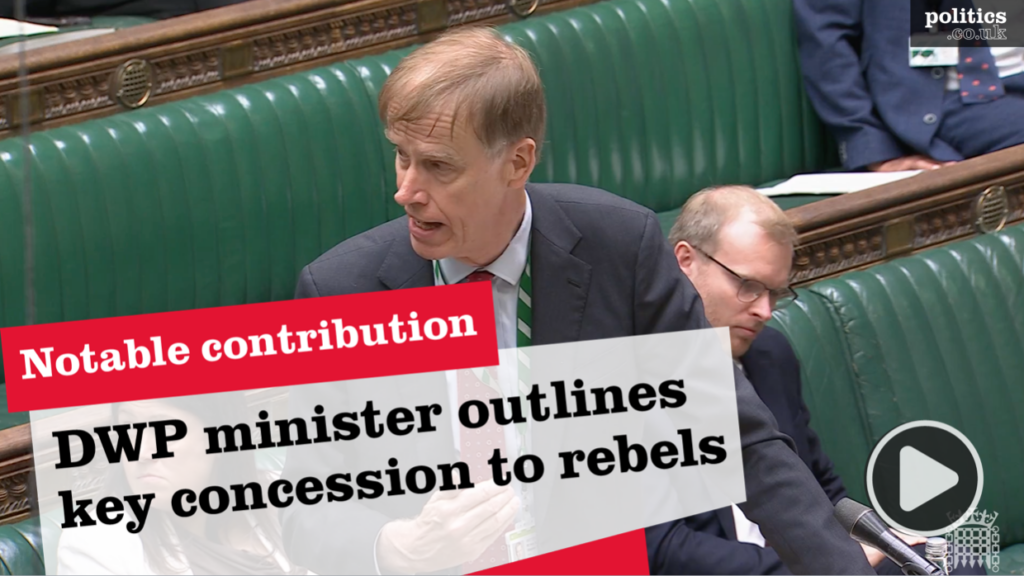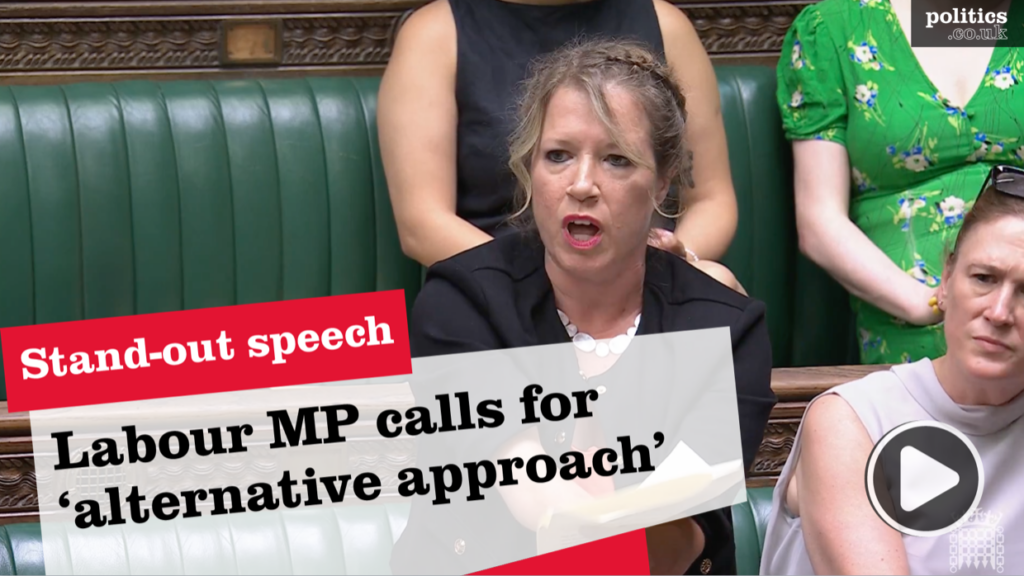Labour have so far been highly critical of the government's 'dithering' over Brexit.
"The government's continued refusal to set out a clear forward plan for our future trading relationships is seeing a sharp drop in [business confidence]," shadow international trade secretary Barry Gardiner said earlier this week.
"Dithering and divisions between ministers do have a direct impact on businesses and government must clearly set out its priorities for the future," he added.
But if Theresa May and her ministers don't yet have a clear plan, then Labour certainly don't either.


Statements issued by Jeremy Corbyn and his shadow chancellor John McDonnell on the subject have so far been vague to the point of utter meaninglessness. Platitudes about wanting "the fullest possible access to the single market," (who doesn't?) have been combined with other general statements about "respecting" the result of the referendum and "understanding" people's concerns about immigration.
Yet when it comes to setting out even the broadest outline of the sort of trade deal and immigration policies that Labour would like, there have so far been few, if any, real answers.
Part of the problem stems from Labour's long and damaging leadership election, which began in the immediate aftermath of the referendum. As a result, the party are only now, more than four months on, starting to get their act together on the subject.
Labour's shadow Brexit team, headed by Keir Starmer, has got off to a good start. However, it has only been fully-formed for less than two weeks. And the team has so far received little clear direction from the party leadership. In fact Politics.co.uk understands that Corbyn has yet to hold, or even arrange, a meeting with all of his shadow Brexit ministers.
"He says he's got an open door policy, but are we expected to just walk in there?" one senior Labour source said.
"Some of us have never even spoken to him."
A spokesperson for Corbyn denied that he has failed to show leadership, pointing out that he had held regular meetings with Starmer, if not with the rest of the shadow Brexit team.
Yet Labour's reluctance to spell out their position cannot just be blamed on Corbyn. In truth, the bigger reason for Labour's vague positioning stems from the deep fractures that Brexit has exposed among the Labour movement.
"On the one hand I've got members of my CLP attacking me for not advocating that we essentially stay in the EU, and keep all the same rules on freedom of movement that we already have," one senior figure told Politics.co.uk.
"And on the other hand we've got lots of MPs with very small majorities, who are under huge pressure from their constituents to change our position on immigration.
This conflict between an overwhelmingly middle class and liberal membership, and a core electorate consisting of large numbers of Leave-voting, white working class voters, has put Labour into a difficult position. As a result, the party is highly reluctant to say anything that may alienate one side or another and are determined to stick to what they describe as "high level principles" about Brexit.
Maintaining that position may be impossible, given the growing calls within the party to do something on immigration. Corbyn has so far resisted such calls, saying only that more must be done to help those areas affected by high levels of migration. However, members of his shadow Brexit team are considering going further. One option under consideration would be to back making freedom of movement dependent on migrants having firm job offers in the UK.
Another suggestion by London mayor Sadiq Khan, to introduce London work visas, has not been so warmly received. "We can't really see how that could work," one source close to the discussions said.
Despite this uncertainty, some consensus on Labour's broad approach is emerging. Figures in both Labour's shadow Brexit team and the leader's office, have told Politics.co.uk that they are unlikely to back full continued membership of the single market.
"Full membership of the single market would be seen as not respecting the result of the referendum," one senior source said.
Even a Norway-style single market deal is unlikely to be pushed for by Labour.
"The Norway option isn't really going to be on the table," they insisted.
"We're looking at a new bespoke deal."
So what would such a deal look like? The party are reluctant to spell that out before the government has set out their own detailed plans, something which Labour expects to happen in the new year.
Yet even then, Labour may have little room to manoeuvre. While much has been said about the potential of MPs voting on Article 50 implementation and the terms of Brexit, the reality is that Labour will be reluctant to vote down the government.
"We don't want to bring down the government over this and we don't want to do anything that would force the UK out of the EU on WTO terms," one source explained.
As a result of this continued reticence, political debate on Brexit among the UK's two leading political parties is set to remain deeply vague.
"We're just shadow boxing at the moment," one senior Labour source admitted.
That may be true, but at some point both parties will have to step out of the shadows.












